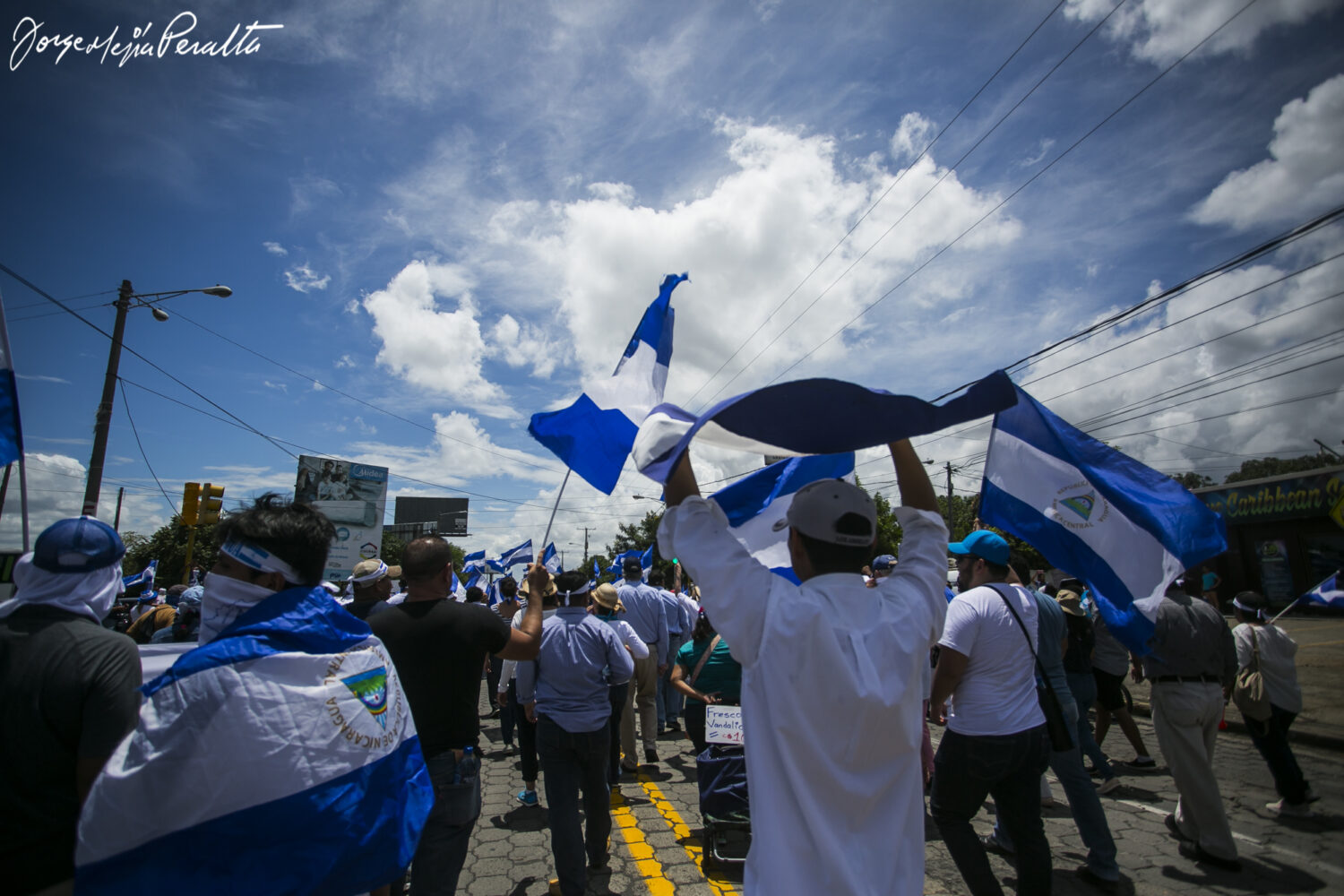Race and Equality, victims, and international human rights protection bodies to discuss in two events: 5 years of crimes against humanity in Nicaragua
San José, Costa Rica – Washington D.C., April 14, 2023.- On the fifth anniversary of Nicaragua’s socio-political and human rights crisis, the Institute on Race, Equality and Human Rights (Race […]

San José, Costa Rica – Washington D.C., April 14, 2023.- On the fifth anniversary of Nicaragua’s socio-political and human rights crisis, the Institute on Race, Equality and Human Rights (Race and Equality) will hold two hybrid conversation-style events – one in San José, Costa Rica and the other in Washington, D.C., United States – to commemorate the April 2018 citizens’ struggle for freedom and provide updates on the consequences of the Ortega-Murillo regime’s repression, as well as the steps to be taken to achieve justice and reparations for the victims.
The first event will be held in Washington, D.C. on April 17 starting at 9:00 a.m., which will include three panels. The first is entitled “Banishment and Loss of Nationality, a New Attempt by the Regime to End Nicaraguan Dissent”.
A second panel will address “The persistence of attacks on Freedom of the Press from the perspective of the victims and the Office of the Rapporteur for Freedom of Expression” and finally, the third panel will discuss the “Challenges and perspectives of the International System for the Protection of Human Rights in the face of the deepening crisis in Nicaragua” with the participation of Mr. Pedro Vaca, Special Rapporteur for Freedom of Expression; Fiorella Melzi, Coordinator of the Special Follow-up Mechanism for Nicaragua (MESENI) and Viviana de la Peña, Coordinator of the Secretariat. Group of Experts on Human Rights in Nicaragua (GHREN).
In San José, Costa Rica, the event will take place from 2:00 pm to 5:00 pm. The first panel will include the participation of victims of grave human rights violations who will speak on “Crimes against humanity and impunity”. The second panel will address “Violence against indigenous peoples and Afro-descendants as a crime against humanity that must be investigated”. Finally, the panel on “Challenges and Perspectives of the International System for the Protection of Human Rights in the face of the deepening crisis in Nicaragua” will include representatives of human rights protection bodies who will refer to the main findings of the protection bodies of the Inter-American and Universal Human Rights System.
Context
In March, the United Nations (UN) Group of Human Rights Experts on Nicaragua (GHREN) presented a report concluding that the Ortega Murillo regime is committing widespread and systematic human rights violations, which constitute crimes against humanity against a specific sector of the civilian population, motivated by political reasons and called on the international community to impose sanctions on the institutions or individuals involved.
The figures recorded from 2018 to date are stark: at least 355 people have been killed, more than 2,000 protesters injured, at least 1,614 people recognized as persons deprived of liberty for political reasons, 36 of whom still remain in state custody in conditions that fail to comply with the United Nations Minimum Rules for the Treatment of Prisoners (Nelson Mandela Rules) and domestic human rights law, more than 250,000 people exiled, 316 people arbitrarily stripped of their nationality and citizenship rights, 222 people banished from their country, 185 journalists exiled, at least 3,321 civil society organizations whose legal personality was arbitrarily canceled. Moreover, since the beginning of the crisis, attacks against indigenous and Afro-descendant peoples of the country have intensified, particularly in the Caribbean Coast.
The Ortega-Murillo regime continues to fail to comply with the recommendations of international human rights mechanisms. On March 29, for the first time in history, the president of the Inter-American Court of Human Rights (IACHR), Judge Ricardo Pérez Manrique, informed the Permanent Council of the Organization of American States (OAS) that Nicaragua has remained in permanent contempt of court for failing to comply with ten resolutions issued by the court to protect the lives of 88 persons deprived of liberty for political reasons, six of whom are still imprisoned.
Events
Race and Equality invites you to follow the live broadcast of both events through Zoom.
Event in Washington D.C.: Register here
Event in San Jose, Costa Rica: Register here
We also invite you to follow the activities through Race and Equality’s Twitter, Facebook, Instagram, and website and share the content using the hashtag #5AñosdeCrímenes, so that the cry for an end to repression and demand for truth, justice, reparations and non-repetition is heard in Nicaragua and around the world.

